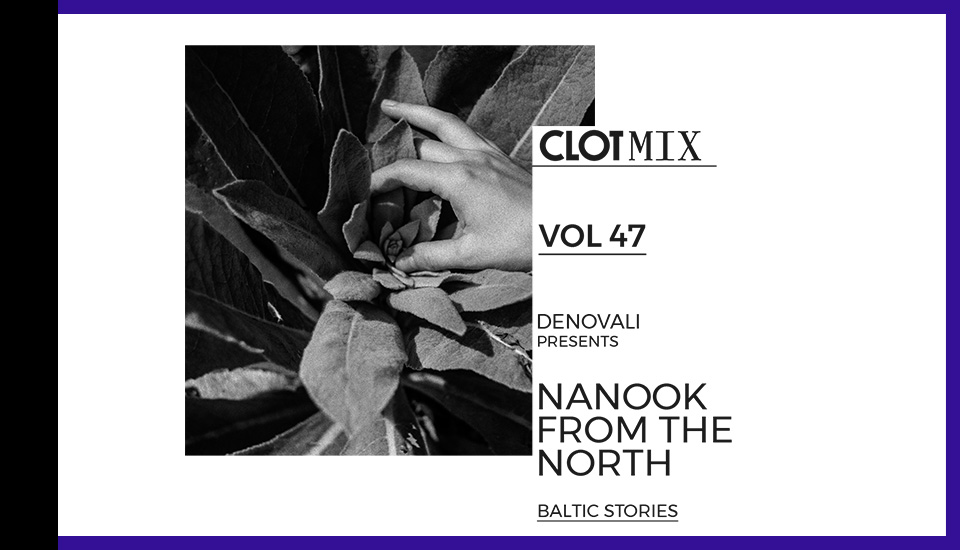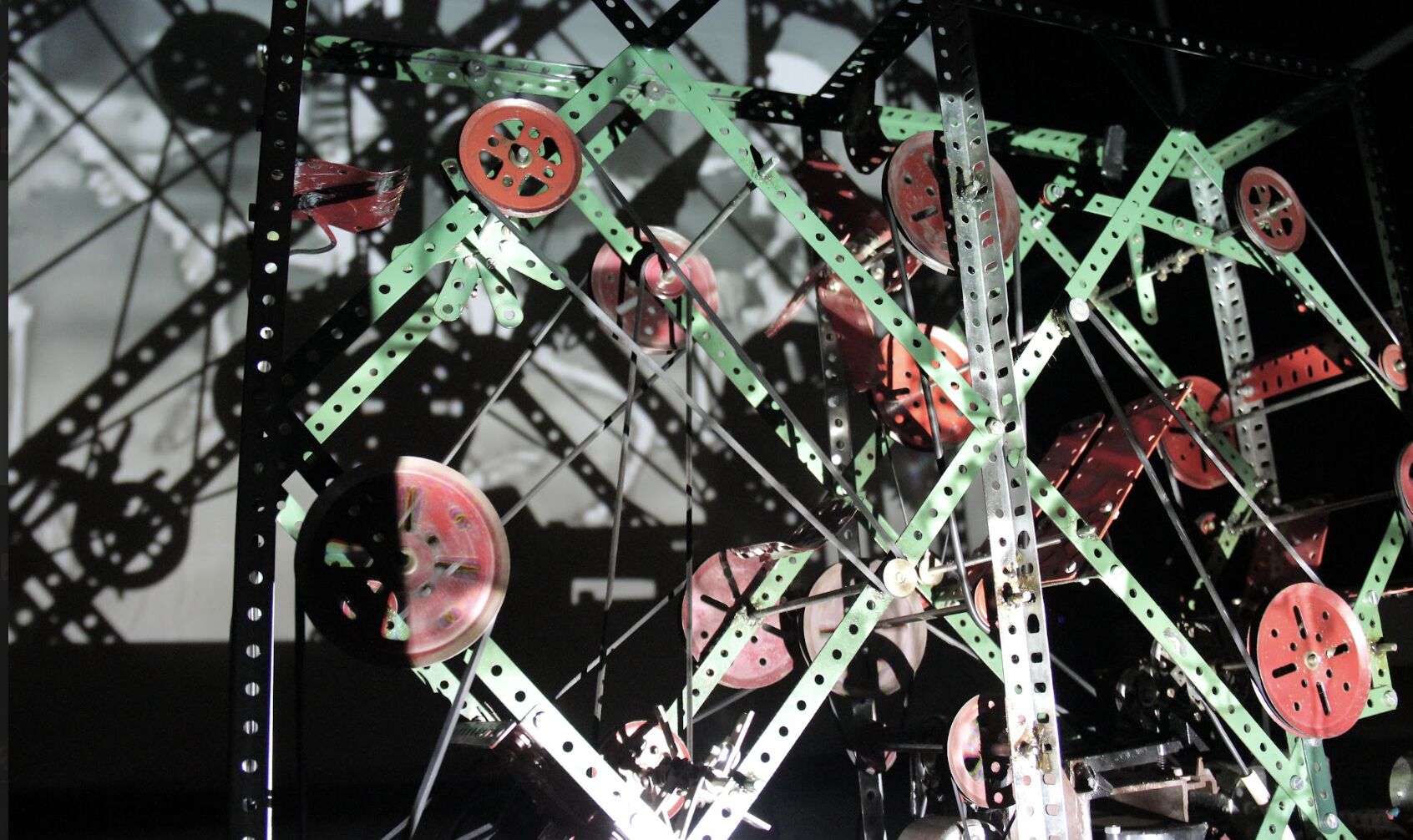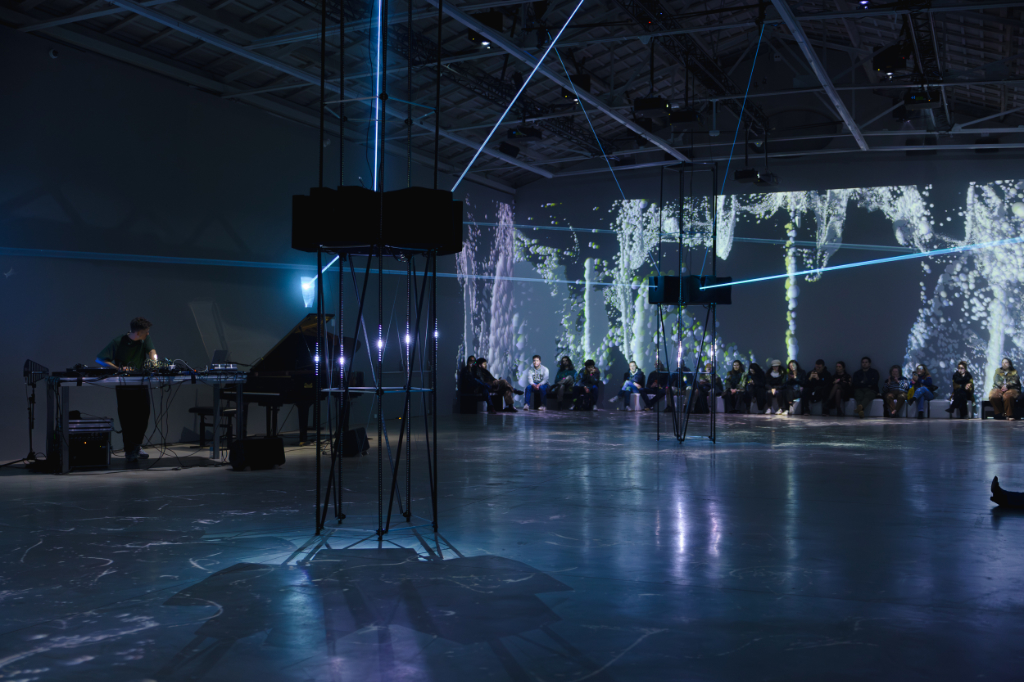Text by CLOT Magazine

Our next Mixtape comes from Nanook of the North, the duo of composer and violinist Stefan Wesołowski and electronic producer Piotr Kalińsk, with a small introduction to their music and the music of their friends.
Taking the name of a 1922 American silent film that follows the struggles of the Inuk man named Nanook and his family in the Canadian Arctic, the two Polish musicians merge compositional roles blending as seamlessly as their use of acoustic and electronic sounds, with Stefan playing the violin and piano parts with additional synth touches and Piotr taking care of electronics, more synths and the final mix.
Their first album, with an eponymous name (published by Denovali), arrived after the pair were invited by the Sopot Film Festival in Gdansk to perform an improvised score to a film screening; they the classic silent movie ‘Nanook of the North and travelled to Iceland to record the album. Despite the icy expansive isolation captured from the movie, the album is also transferrable in scenario and evocation, equally omitting the dangerous allure of dystopian cityscapes or even the 80s sci-fi horror menace of Maurice Jarre, Howare Shore and Jay Chattaway.
Nanook of the North are now back with their second album Heide (Denovali, 2022). Their new material is a raw and minimalist sonic landscape, practically devoid of percussive elements but featuring vocals by an acclaimed mezzo-soprano Margarita Slepakova.
As with the debut, the music on “Heide” is rooted in nature and its primordiality. The title of the album alludes to wildness and untamedness. The material was recorded last winter in a village in the middle of forests in northern Poland, which is clearly felt in the atmosphere of the tracks on Heide.
The mix they have prepared is aimed to be an introduction to their craft and the music of our friends and collaborators from other projects – such as Jacaszek or Olga Markowska (also the author of the cover of Heide). 100% Polish music. Including “Hinode Tapes #05” (the second song), which was recorded by Piort’s new improvising trio Hinode Tapes (released on August 26 by Instant Classic), a great and very inspiring Krakow label.
You are releasing your second album, Heide, after an acclaimed debut. What was the creative process like for its production? What were you technically and/or conceptually exploring with it? In what ways was the process different from the first album?
Piotr: I thought I don’t have to use drums on this album, and we really wanted to explore the human voice. We wanted to work quickly and intensively with very basic post-production. I think our debut and “Heide” are like brother and sister. Same but very different.
Stefan: I think the main difference between the work processes was our experience. We had to find the right way to collaborate for the previous album, which took years to discover. Heide was a piece of cake compared to our debut,
Heide is rooted in nature and its primordiality, with the album’s title alluding to wildness and untamedness. What compositional or musical elements are essential for you to bring these wild, earthy sounds to your album?
Piotr: Interesting question. I think it will be tense. Even if it is not that intense, it’s like the calm before the storm or a strange dream. And a lot of silence. No rush.
Stefan: Agree.
Also, Poland is known for having outlandish forests (a bit of magical and mystic places). What influence has (or has had) this type of landscape on your artistic practice?
Piotr: Gdańsk (where we are from) is surrounded by the Baltic Sea and huge old forests. I can’t imagine a better place to create our sound.
Stefan: Our forests, our dark, cold sea, and our windy aura are a key part of me. I found it hard to work and be creative when it’s too sunny, warm, pleasant, and comfortable. I experience deep joy and inspiration when cold rain covers my face, and the roar of the sea waves surrounds me.
Stefan is a composer and violinist, Piotr is an electronic music producer and guitarist, and Margarita is a mezzo-soprano specialised in the field of historical practices of early music. How your different backgrounds and specialities have influenced the production of the album? What were the challenges?
Piotr: It sounds like a mess, but it’s actually very easy to work with so many different experiences – each person is a specialist in their field of interest. It was great to collect it all and create a new, solid form and way of artistic expression. Not just another cross-genre collab.
Stefan: Well, it wasn’t that easy with the debut album! We had to learn a lot. But after a few years, we work like we have a handbook of perfect cooperation
In your work, you use modular synthesis, field recording and sampling techniques; what is your relationship with technology and the analogue for your music productions? And how do you cope with technology (screen/digital) overload?
Piotr: I really like the Lyra-8 synthesizer; it is another level of creativity. I think the Lyra-8 is not just another synthesizer in my studio; it is rather a new and independent instrument with a very original universe.
I listen to many Polish and Japanese ambient / jazz/folk music, mainly from the ’80s and early ’90s. I really like minimalist compositions and very simple post-production. So maybe the next Nanook of the North release will be very ascetic? Like a 4-track recording, only two instruments? Or maybe even one?
Stefan: I am very curious about what we will do next if we do. It’s unpredictable, even for us
What is your relationship with technology and the analogue for your productions nowadays? And how do you cope with technology (screen/digital) overload?
Piotr: I try to keep it simple and minimal. There are a lot of analogue sounds in “Heide” – for example, the Polyend Medusa or the old Roland and Korg synths and effects from the ’70s and 80s. But I treat it as a sample pack; my main tool is Ableton Live – as a kind of recorder. I hate taking multiple takes of the same phrase, so most of the parts and compositions on the album are the first takes.
I am not a software or hardware freak. I think analogue and modular sounds are a fetish, more important than the music itself. And yes, I’m tired of technology, too many screens – I’d like to make an album with tapes and a mixer. Generally, I’d like to listen to music and watch fewer waveforms.
Stefan: I am completely different. Technology is a necessary evil for me. I use it because I have to.






